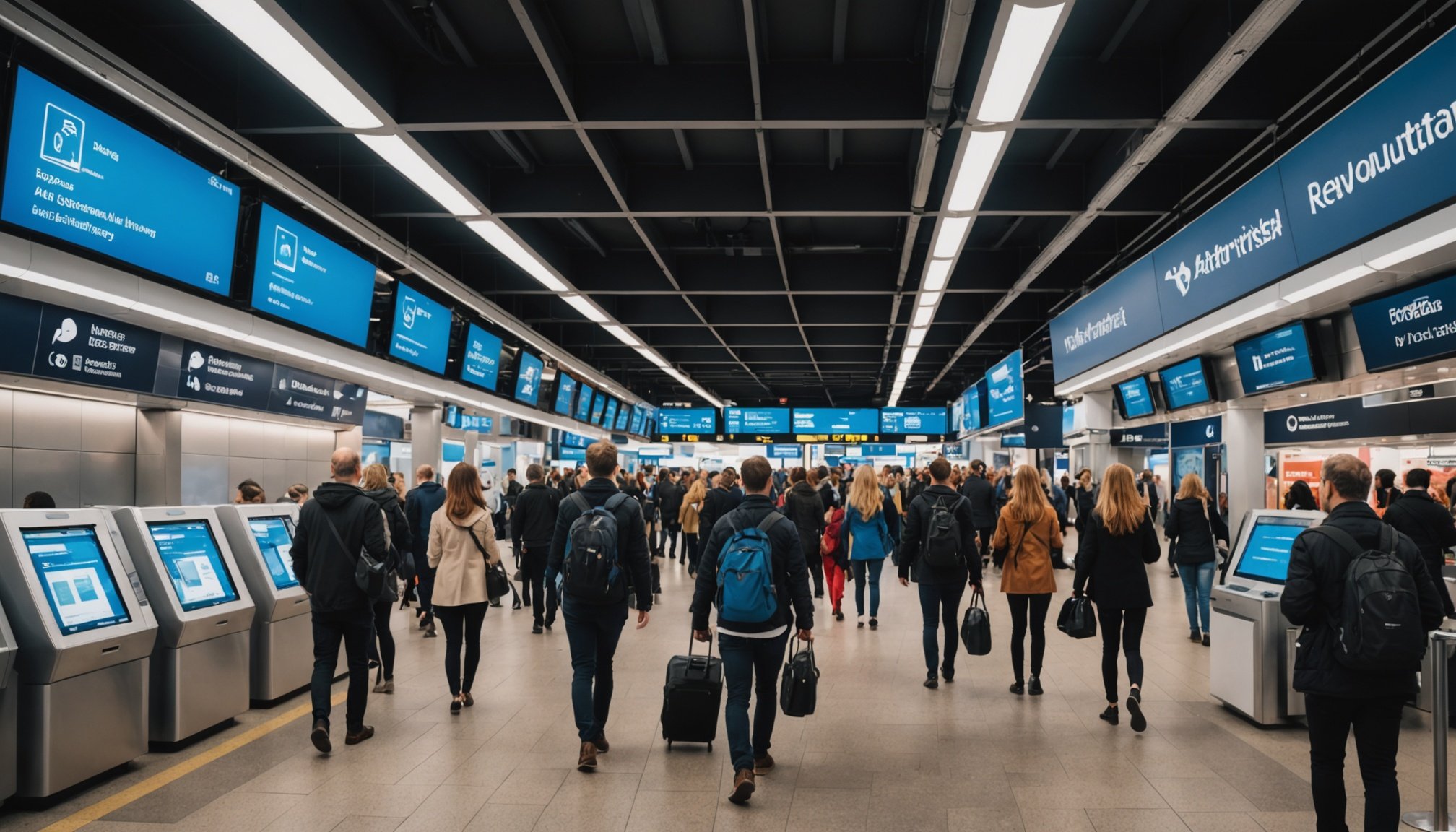The Role of AI in Transforming UK Travel Experiences
Artificial Intelligence (AI) is significantly reshaping UK travel by tailoring journeys and enhancing customer satisfaction. AI in travel is primarily used for personalisation and operational efficiency. Various technologies are deployed to streamline the travel process and enrich customer interactions.
Current AI technologies in travel include chatbots, recommendation systems, and predictive analytics. These systems offer personalized travel experiences by suggesting itineraries and accommodations based on individual preferences. By analysing user data, AI creates tailored journeys that cater to specific tastes and requirements, leading to a more satisfying travel experience.
Also read : Comprehensive oil pipeline solutions for today's challenges
Moreover, AI improves overall travel efficiency. It helps in reducing waiting times by optimizing routes and schedules, thereby enhancing customer satisfaction. For instance, predictive analytics can forecast travel delays and recommend alternative plans, ensuring seamless travel experiences.
The benefits of AI extend beyond efficiency. It elevates personalised customer journeys, allowing travellers to receive customised recommendations and offers. Such capabilities not only improve the user experience but also foster loyalty and trust in the travel industry. Through AI, UK travel is moving towards a future where each traveller’s journey is uniquely tailored, efficient, and consistently satisfying.
Also read : Revolutionizing uk finance: how blockchain innovations are boosting efficiency in financial institutions
Case Studies of UK Travel Agencies Utilizing AI
Across the United Kingdom, travel agencies have begun integrating AI into their operations, driving substantial innovations. This trend can be observed through the lens of three distinct agencies, each harnessing AI for unique purposes.
Agency A: Revolutionizing Customer Interaction
Agency A stands out by transforming how they interact with customers. They have adopted chatbots and intelligent customer service systems, significantly enhancing customer support. AI implementation allows them to handle inquiries more efficiently, providing instant and accurate responses. This innovation not only improves customer satisfaction but also frees up human agents for more complex tasks.
Agency B: Using AI for Tailored Recommendations
Agency B sets itself apart by using AI to offer tailored recommendations to their clientele. Leveraging AI algorithms, they analyse past trip data and preferences to suggest personalised travel experiences. This tailored approach has led to increased booking rates and customer loyalty, showcasing the transformative potential of AI in travel.
Agency C: Predictive Analytics in Travel Planning
In a different vein, Agency C employs AI for predictive analytics, enhancing their travel planning capabilities. By forecasting demand and predicting travel trends, they optimise inventory and reduce costs. This proactive strategy has emerged as a key lesson for other UK travel agencies, demonstrating the strategic advantage of AI-powered analytics in the evolving travel landscape.
Customer Testimonials on AI-Enhanced Travel Services
When it comes to AI-driven services in the travel industry, customer feedback is a vital source of insights. Many travellers have expressed their travel satisfaction, praising the increased customization and flexibility offered by AI-enhanced platforms. One user shared an experience of having their itinerary adjusted in real-time based on changing weather conditions, enhancing their trip significantly.
Customisation is not merely a bonus but a cornerstone of customer journeys today. With AI travel experiences, itineraries can be tailored to accommodate personal preferences, making trips more seamless and enjoyable. This not only heightens the travel experience but also fosters customer loyalty.
The wider implications for agencies leveraging AI cannot be overstated. Positive testimonials can bolster an agency’s reputation, positioning it as innovative and customer-centric. Moreover, as travel satisfaction increases, the likelihood of repeat business and positive referrals amplifies, creating a virtuous cycle benefitting both travellers and service providers.
In conclusion, the impact of AI on the travel sector is multi-faceted, with strong indicators of long-term benefits in customer satisfaction and business reputation.
Practical Tips for Travel Agencies Implementing AI
Integrating AI implementation strategies in travel agencies begins with understanding the tools that will enhance your business.
Assessing the Right AI Tools for Your Agency
Choosing the right AI tools is crucial. Not every AI solution fits every travel agency’s needs. Begin by identifying your agency’s specific requirements and challenges. Does your agency need help with customer service, booking processes, or itinerary management? Each area may require a different tool, and understanding these needs helps in selecting the most appropriate AI solution.
Training Staff to Embrace AI Technologies
Once AI tools are selected, the next step is training. Cultivating a workforce that embraces AI technologies is vital. Staff must be confident in using new systems to fully leverage their capabilities. Training programs should emphasize the benefits of AI, demonstrating how these tools simplify tasks and enhance customer journeys.
Monitoring and Evaluating AI Performance
After implementation, monitoring and evaluation are key. Set specific metrics to measure the effectiveness of your AI tools. Consider customer satisfaction scores, time savings, and error reduction as indicators. Regular assessments ensure that AI continues to meet your agency’s goals, allowing for adjustments and improvements as necessary.
Future Trends in AI and the Travel Industry
As we explore the future of travel, it’s imperative to address the role of AI in shaping this evolution. Experts anticipate significant AI trends, including personalised travel experiences powered by advanced data analytics. Imagine receiving tailored suggestions based on past preferences—that’s where AI is heading. Furthermore, AI can streamline customer service through automated chatbots, improving efficiency and traveller satisfaction.
However, integrating AI into the travel industry doesn’t come without its challenges. Agencies may face hurdles such as the high costs of implementation and the need for constant system updates. Additionally, there’s the vital issue of data privacy, which requires robust security measures to gain customer trust.
In this ever-changing landscape, adaptability is crucial. Travel agencies must keep pace with these technological advancements to remain competitive. Encouraging innovation and equipping teams with the right skills will be essential for successfully navigating the travel industry evolution. Adapting to new AI trends will not only meet consumer expectations but also drive future growth and expansion.











